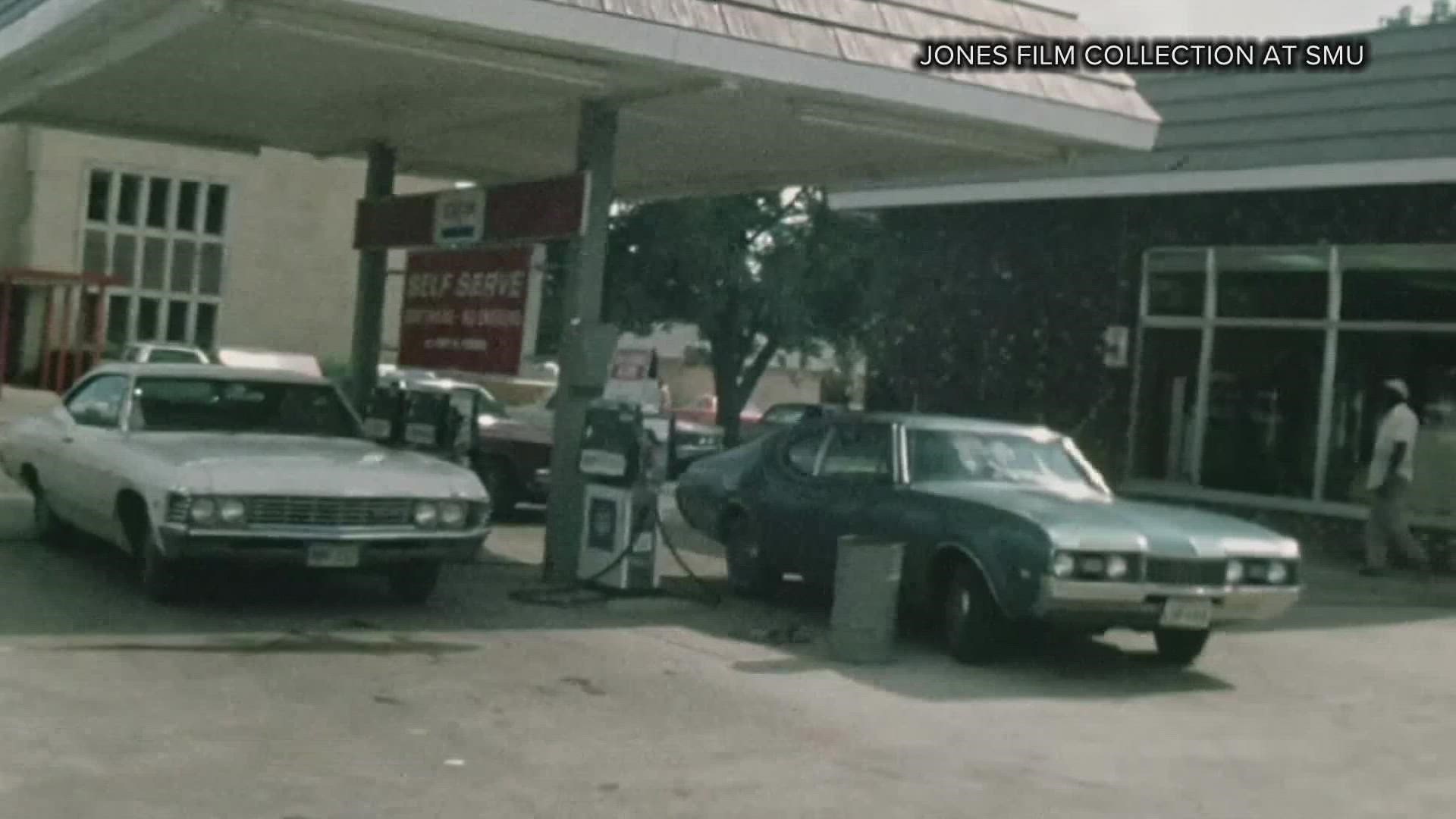DALLAS — Fuel supply issues amid international tension have a history of rocking the global economy just as it is today.
Inflation and supply chain disruption were already sending gas prices skyward even before the Russian invasion of Ukraine pushed the cost of oil even higher.
Though not the exact same dynamics, the current increase in gas prices does hold some similarities to the oil crisis of 1973. That year, OPEC’s Arab countries declared an embargo against several countries including the United States in response to their support of Israel.
The result was a crisis that left drivers and governments looking for not only gas, but ideas to make supply last as long as possible.
The federal government instituted a temporary price cap on a gallon of gas to keep costs down but that created other troublesome issues. Oil companies and gas stations unable to turn a profit due to the price cap scaled back on operating costs. That resulted in stations spending fewer hours being open for business, creating long lines of drivers hoping to fill up while they could.
Another possible solution for drivers trying to save gas, and money, was to simply drop their speed.
Easier said than done.
A 1973 WFAA story examined a city manager request to the Dallas City Council to lower speed limits from 60 mph to 50 mph on all expressways within Loop 12. But even drivers who acknowledged the benefits of slowing down found it hard to do so after growing accustomed to driving at higher speeds.
The ways to conserve even included a ban on Sunday driving in a handful of European countries and was considered in the U.S., a thought which left the National Football League in limbo.
When asked by WFAA, longtime and legendary Dallas Cowboys President and General Manager Tex Schramm said a Sunday driving ban could lead to games being played on Saturday but you would not see them on TV.
“It would mean a blackout of all professional football,” explained Schramm citing agreements that prohibited the NFL broadcasting games while Saturday college football games were also being televised.
The situation never came to pass but Schramm lamented the other option.
“I do not think our game would be attractive in empty stadiums,” he said.
An unattractive option that would become a reality nearly 50 years during the COVID-19 pandemic.

